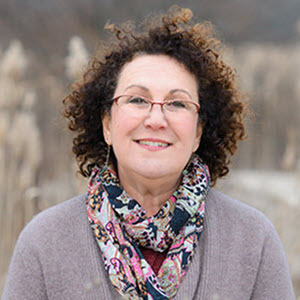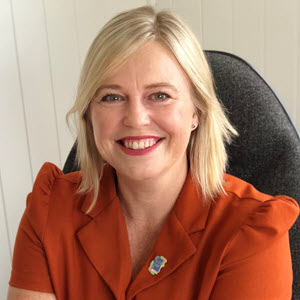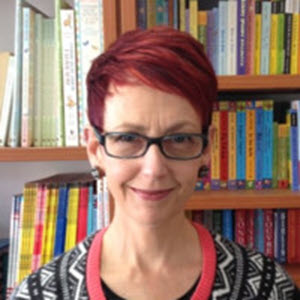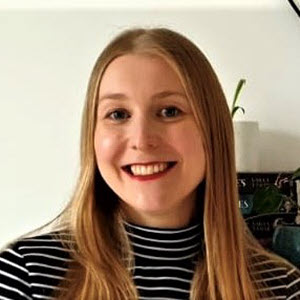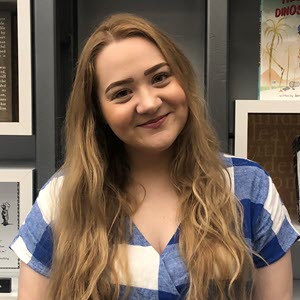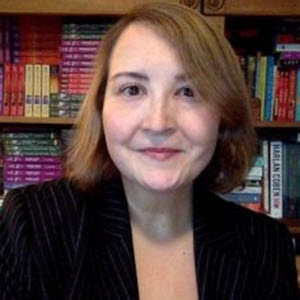This year, you’ll be able to pitch our fab editors and agents digitally over Zoom, during the weeks either side of conference.
We have a great lineup of agents and editors this year, with more names to be announced. Spots are limited, so book in early because, while we’ll do our best to try to get you in to all your top choices, pitches are first in, first served.
To pitch, you’ll need to have either a full manuscript, or be an experienced author with a proposal.
I’ve never pitched before, what do I do?
After the details of the pitching line-up (below) there is a guide with links to help you with your preparation. RWNZ recommends reading Kristin Nelson Agent’s blogs on pitching. The key thing to remember is these great people are wanting to love your book as much as you do. Read more about pitching here….
The Pitching Line-Up
- Agent – Jim McCarthy – Vice-President, Dystel, Goderich & Bourret LLC
- Editor – Deb Werksman – Editorial Director, Sourcebooks
- Agent – Alex Adsett – Adsett Literary Agency
- Editor – Nicola Robinson, Harlequin AUS
- Editor – Nicola Caws, Harlequin UK
- Editor – Elle Keck, Avon/HarperCollins
- Agent – Jessica Alvarez, Booksend Literary
- Agent – Lizzie Poteet, The Seymour Agency
Jim McCarthy
Jim McCarthy is an agent and vice president at Dystel, Goderich & Bourret, where he’s been for 20 years. He represents adult, young adult, and middle grade, both literary and commercial, and is particularly interested in literary fiction, underrepresented voices, fantasy, mysteries, romance, anything unusual or unexpected, and any book that makes him cry or laugh out loud.
What I’m looking for:
YA or MG in any category, commercial women’s fiction, contemporary romance, paranormal romance, urban fantasy
Deb Werksman
Deb Werksman has been at Sourcebooks for the past twenty-three years, before which she had her own publishing company. She is the editorial director of romance fiction and acquires single title romance in all subgenres, romcom, uplit, and romantic women’s fiction. Sourcebooks is the country’s largest woman-owned independent publishing house. We’re known for our sales and marketing, as well as our focus on building authors’ careers.
I’m looking for:
- Single title full-length romance fiction (80,000 words and longer)
- Romantic women’s fiction
- Romcom
- Uplit—women’s fiction with a happy ending that’s not necessarily romance
Alex Adsett
Alex Adsett is a literary agent and publishing consultant with almost 25 years’ experience working in the publishing and bookselling industry. She has managed Alex Adsett Literary since 2008, and has helped hundreds of authors review and negotiate their publishing deals. As an agent she represents more than 45 authors of all ages and genres, including Melissa Lucashenko, Pamela Hart, Sasha Wasley, Jodi McAlister, Hugh Breakey and Leisl Leighton. She regularly speaks on copyright and contracts around Australia, is an alumni of the Australia Council Arts Leaders Program 2019, and serves on the board of the Small Publishers Network.
What I’m looking for
I am not looking for traditional urban fantasy or paranormal romances. I am also not looking for parody, satire, category romance, Mind Body Spirit, or memoir. Turn offs for me include dubcon, silly heroines without any agency, humour at the expense of plot, miracle babies.
I’m particularly keen to see murder mystery romances, rom coms, science fiction romance, historical romances with a difference (eg. 1920s Egypt, Norse mythology), any kind of romance (even urban fantasy) from Asia Pacific region, especially Pacifika authors.
While science fiction and fantasies are my first love, the genres I’m loving at the moment are rom coms (Red, White & Royal Blue, anything by Lucy Parker), 1920-30s murder mysteries (Miss Fisher, Sulari Gentill’s Rowly Sinclair series, Dorothy Sayers’ Peter Wimsey).
Nicola Robinson
Nicola Robinson is commissioning editor at Harlequin Books Australia. She was previously senior editor at HarperCollins Australia, working on both fiction and non-fiction. She has also worked in journalism, community arts and event management. Originally from New Zealand, Nicola now lives in Sydney with her husband and small white dog Harry, but she will always be a Dunedin girl at heart.
What I’m looking for
I will be looking for contemporary women’s fiction, romance, historical romance, crime and romantic suspense.
Nicola Caws
Nic Caws is an Editor for Harlequin Series, working in the London office (these days affectionately known as her flat!).
She came to Harlequin in 2013, after completing her B.A. in English Literature, and promptly fell headlong into a love affair with category romance. Nic has been lucky enough to work closely with authors across Harlequin’s Presents/Modern, Historical, Medical, Romance and Dare lines.
She’s looking to acquire unique, gripping voices, with fresh twists and perspectives on popular themes. She’s passionate about finding and acquiring authors who have traditionally been underrepresented in romance publishing. Over the past year Nic has discovered the restorative properties of long walks, has listened to about a billion podcasts and has periodically attempted DIY projects.
What I’m looking for:
Nic is looking for manuscripts suitable for Harlequin’s Modern/Presents, Romance, Medical and Historical lines.
For the Modern line, she would love to see far-flung locations, innovative story-telling formats, heroines driving the story tropes, and outrageous attention-grabbing set-ups that hook the reader in from the first page!
Medical romances where both central characters are Medical professionals, and hospital-set dramas in unique locations are on her list!
For Romance, she’s interested in couple-focused storylines without too many secondary characters and emotionally driven storylines.
And please pitch your Historical romances of all time periods too – if you can teach Nic something new about the Regency or Victorian era, all the better!
Elle Keck
Elle Keck, Editor, has been at Morrow/Avon since 2014 where she publishes many bestselling and award-winning authors. She is currently focusing on sexy, intelligent romances with an eye for diverse narratives and captivating voices, as well as Women’s Fiction for the young millennial woman.
Her authors include Alexis Daria, author of YOU HAD ME AT HOLA, a Target Diverse Book Club Pick and A LOT LIKE ADIOS, Olivia Dade, author of SPOILER ALERT, an Indie Next Pick and ALL THE FEELS, Sunday Times bestseller Bolu Babalola, author of LOVE IN COLOR, a collection of romantic retellings of myths and legends, and Charis Michaels, USA Today bestselling author of A DUCHESS A DAY, the first in a new series retelling beloved fairy tales.
Some of her exciting upcoming books include BATTLE ROYAL by Lucy Parker, the first Avon title from the critically acclaimed author, THE QUEER PRINCIPLES OF KIT WEBB, a Queer historical romance novel by beloved author Cat Sebastian, THE COWBOY SAYS YES, the first in a new cowboy romance series from Addison Fox, and DUKE GONE ROGUE, a Victorian historical romance from USA Today bestselling author Christy Carlyle.
Jessica Alvarez
After ten years as an editor, Jessica Alvarez joined BookEnds in April 2011. She began her publishing career in 2001 as an editorial assistant at Harlequin Books. There, she had the opportunity to acquire and edit a wide array of fiction, specializing in historical romance, romantic suspense, and inspirational romance. Jessica left Harlequin in 2008 to pursue a freelance editing career, and completed projects for Harlequin, Scholastic Books, Thomas Nelson, and independent writers. She is a member of AALA and uses her editorial background to help writers hone their skills and develop strong, marketable books.
Jessica read her first romance at the age of nine when she pilfered from a friend’s mother’s Harlequin Presents collection and was instantly hooked. Though her pilfering has passed, her weakness for alpha heroes and exotic settings remains.
A New Jersey native, Jessica still resides in the Garden State. She is perpetually over-caffeinated in an attempt to keep up with her son and three energetic dogs. In her spare time, she enjoys cooking, swimming, watching bad (but oh so good!) television, and volunteering with Rescue Dogs Rock NYC.
What I’m looking for:
Jessica is actively building her client list. Her areas of interest include most areas of romance, women’s fiction, and cozy mysteries. She’s also looking for select nonfiction.
Lizzie Poteet
Lizzie Poteet is an agent at The Seymour Agency focusing on commercial fiction and nonfiction. After five years at St Martin’s Press/Macmillan working as an editor, she made the move out of NYC and editorial and to Nashville and agenting. A hopeless romantic, she’s eternally grateful she found a way to channel her immense feelings about feelings into a legitimate job where swooning is considered a job skill. She now lives in a yellow cottage with green shutters with her dogs, Mr. Darcy and Miss Dashwood, where she watches a lot of TV.
Interested In: strong female characters, commercial fiction and nonfiction, genre romance (historical, suspense, contemporary, sweet/inspirational, cowboys, LGBTQ+), cozy mysteries, domestic thrillers (preferably with a female perspective), contemporary YA, paranormal YA, engaging voices, authentic protagonists, fun retellings of class tropes.
Uninterested In: international espionage mysteries, children’s books, poetry of any kind, genre science fiction/fantasy, books about golf, middle grade
PITCH PREPARATION
A pitch is like a particularly short and pleasant job interview and as such needs approaching in the same way.
Firstly, research the people you are pitching to. What books have they recently published? Who do they represent? How does your book fit in with their current stable? Check them out on Twitter, Facebook and their websites for answers. Google is your friend.
You then need to be able to sell your book. You need to convey what the story is about, how it fits with them/their line and what makes it special and sets it apart from other competing works of fiction. Think of the back cover blurb – exciting, emotive and brief. It should cover your main characters, their conflicts and the plot. Take in prompt cards to help you, but make sure you’ve practiced your opener to the cat, baby or any other writers you can bribe with a coffee or reciprocal arrangement. It will make it easier to present if you’re nervous on the day. Make sure you’ve also got a blurb on what sells you, so if you are asked about yourself you know the best things to say. A professional, but friendly approach to the pitch will have you well on your way.
Here’s some advice from Kristin Nelson (Nelson Literary Agency)
When writing your pitch paragraph, all you need to do is examine the first 20 or 50 pages of your manuscript. Then zero in on the main catalyst that starts the story forward—the main conflict from which all else in the novel evolves. It’s the catalyst kernel of your story that forms your pitch.
What you need to remember is that your pitch paragraph needs to read like the back cover copy of a novel. Notice that when you read the back cover of a book, it just gives a hint or a teaser of the story and that it also usually focuses on a crucial early event in the novel. That gets the ball rolling.
And the back cover copy of a book never reveals the ending—and neither should your pitch paragraph. After all, if I want to read the entire novel, I don’t want to know the ending beforehand.
So what I suggest is that you go to your local library or bookstore and browse the section that holds the novels comparable to yours (i.e. if you are writing a thriller, look at thriller novels. If you are writing a paranormal romance, read the back covers of other paranormal romances. If you write literary fiction, read the back cover copy of literary works and so on).
You want your pitch paragraph to mirror that same sort of rhythm and content of those back cover examples. After all, that copy was written by experts and analysing how the experts create enticing copy can only help you to write yours.
There are great guides online from other writers.
Jane Friedman: The Basic Pitch Formula
Or Google away. Please note that RWNZ conduct pitches slightly differently to those sometimes held in the States so don’t panic if other pitching advice mentions things that sound left field.
Pitch Etiquette
If you need to change anything or the pitch coordinator has made a mistake, let them know as soon as possible. RWNZ wants to maintain our professional reputation with the agents and editors and so wishes to minimise changes at the conference itself, but changes are better than just not showing up.
Please be very respectful of the amount of time you have to pitch. There is not time between the pitch sessions for anyone to run late.
Please arrive for your pitch appointment time 5 minutes early and leave your session as unobtrusively as possible. A chair closer to the exit might be a good idea for that particular session.
Don’t get too nervous. All of the editors and agents at the conference are LOVELY and will be used to meeting first-time pitchers. Think of it as an opportunity to have an enthusiastic conversation about your book with a like-minded individual. It’s a long way to New Zealand and they are coming because they WANT to find the brightest and the best new manuscripts here. You are bypassing the slush pile. It’s all good!
Follow through after the conference. If you are asked to send something, that’s great! Make sure you undertake all agreed actions in a timely manner.


